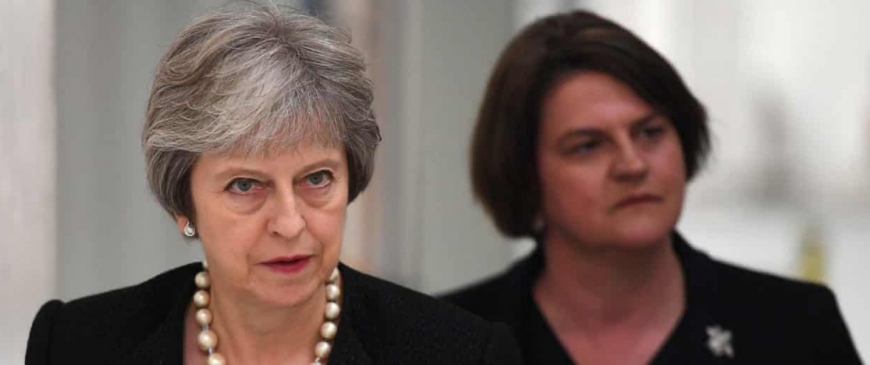
May's reckoning with the Tory right over Brexit is fast approaching
Over the years, different Conservative leaders have tended to use similar tactics to deal with the rightwing anti-EU minority in the party. Ever since Tory leaders stopped winning decent majorities in 1992, they have tried to bribe the right, but the price has grown with each concession. Major gave them social conservatism. Hague ran a “keep the pound” campaign. Cameron gave them the Brexit referendum. Theresa May will run out of money this week, and she now faces a reckoning.
The choreography was supposed to be this: strike a deal with the EU on the Irish border on Monday, get cabinet agreement on Tuesday, hold a summit with EU leaders on 17-18 November, and hold the parliamentary vote in December. But it is far from clear that a deal will survive contact with the cabinet, the DUP and the European Research Group.
The first problem is that the EU will not allow the UK to end the “backstop’’ unilaterally. The 27 have accepted May’s demand for an all-UK customs union to complement a special status for Northern Ireland, if the Irish border cannot be kept open by other means. She had hoped that this would split the DUP from the ERG, because it prevents a customs border in the Irish Sea (although there would be a regulatory border). But the EU will not allow the backstop to be time-limited or the UK to leave the backstop unilaterally, because it would not then be a failsafe method to stop any border checks on the island of Ireland. Tory Brexiters – with some reason – fear that the EU will not agree that any new technologies or tariff cashback schemes will be enough to end the backstop, once it has been triggered, and Britain will be, to their mind, stuck in “vassalage”.
The second problem is that the DUP is refusing to be mollified by an all-UK backstop. Again, it has a reasonable case, if you accept its uncompromising unionist logic. The mooted all-UK backstop is clearly two backstops: a customs union for the UK as a whole, and single market participation in agriculture and industrial goods for Northern Ireland. That isn’t enough to prevent checks between Britain and Northern Ireland (the EU checks imports to the single market for compliance with agriculture and goods standards, and VAT). The DUP has made it plain that it will not accept either a regulatory or customs border down the Irish Sea.
The third problem is that there is no convincing plan to prevent the backstops from happening. The text of the deal will include a negotiating sequence. The UK and EU will try to keep the Irish border open with a trade deal encompassing the whole of the UK. The transition might be extended to give the parties more time to reach an agreement. Britain and Northern Ireland will fall into their respective backstops only if no agreement is reached. But the chances of such a trade deal being reached are very slim.
May has already suggested two ways to avoid a backstop, both of which have been rejected by the EU. Her first proposal was to use technology and a dual-tariff system to prevent customs checks. The EU said that a dual-tariff scheme encouraged fraud and that the technology does not exist. Her second was for all-UK participation in the single market for goods and agriculture. The EU rejected that, saying that this violated their principle that all freedoms of the single market must come as a package. It is unlikely that the EU will be more compromising once the UK has left, and any technological fixes will be a long time coming, if they ever turn up at all. Brexiters are right that the UK is heading towards a long-term customs union with the EU, extinguishing their hopes for trade deals and deregulation. The UK will have to continue with EU employment, environment, state aid, fish and agriculture rules to participate in a customs union.
If May survives this week without more ministers resigning and a leadership challenge, she faces a parliamentary vote that will be difficult to win. The political declaration on the future relationship will be vague, but the withdrawal agreement leads the UK towards a customs union, which reduces her votes to the right. She will probably have to rely on Labour votes to win, and polling suggests leave voters in Labour constituencies are changing their minds. She has sought compromise since her ill-fated general election, but the UK’s politicians appear to be too polarised for turning.
John Springford is deputy director of the Centre for European Reform in London.
